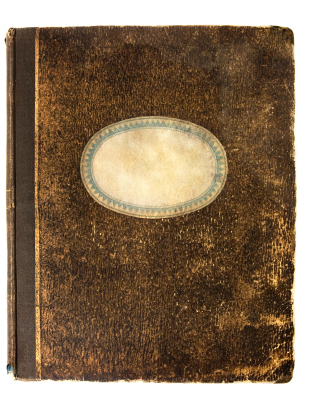 Book: Joseph Gould, An Oral History of Our Time
Book: Joseph Gould, An Oral History of Our Time
Publisher: Long Island Duck and Chicken Farm Press, 2009
?In the Winter I Am a Buddhist, and in the Summer I Am a Nudist?
?. . . he smelled sulfur, and looked up, and saw the devil walk past. But later that night, on Pier 26, he saw two mermaids.
?They weren’t exactly half women, half fish; they were more like half women, half snakes,? he said. ?And when they saw me sitting on the pier looking at them they held out their arms and wriggled and made certain other motions trying to tempt me to come with them. And if I had done so they would have wrapped themselves around me and dragged me to the very bottom of the river.?
Joseph Gould, ?Good Men Are Dying Like Flies,? from An Oral History of Our Time
New Yorker writer Joseph Mitchell has been writing a series of profiles of Greenwich Village eccentric Joseph Gould. Mitchell asks to read the manuscript of Gould’s magnum opus, An Oral History of Our Time, which Gould has been hiding at a Long Island farm.
Gould being a penniless vagrant, Mitchell gives him the money to take a train to the farm to fetch his manuscript.
 Gould returns from Long Island in a fury; the farm’s owner has moved to Florida with the key to the cellar where his manuscript is stored, and her daughter has turned him rudely away. Gould is hopeless of ever retrieving his manuscript.
Gould returns from Long Island in a fury; the farm’s owner has moved to Florida with the key to the cellar where his manuscript is stored, and her daughter has turned him rudely away. Gould is hopeless of ever retrieving his manuscript.
He gives Mitchell the box of chocolates he had bought, with Mitchell’s money, for the farm’s owner, and offers to recite the history for him.
?The history of a nation is not in parliaments and battlefields, but in what people say to each other on fair-days and high days, and how they farm, and quarrel, and go on pilgrimage.? So wrote W. B. Yeats in an introduction to a book by Irish historian William Carleton, and it is what turned Joseph Gould’s life around and set him to writing his famed book, completed in 1953 and now finally available in hard cover.
Joseph Gould was a familiar figure on the streets of New York City in the 1930s and 1940s. He was friends with e. e. cummings and Ezra Pound, among other notables.
A Harvard graduate, he chose a life of vagabondage on the streets of New York City in order to be near the voices that to his mind represented the very fabric of time and to record their conversations in reams of dime-store notebooks.
You can’t help but come away from An Oral History of Our Time believing that history is the flotsam born on the words we exchange. It’s as if Dostoevsky’s better dialogues had been all gathered into one book, those passages where you say to yourself, These are people I know! And yes, they are marvellous and amazing!
This book should be on every culture maker’s shelf. Not just a sparkling window into the reality of modern life, it embodies a rich source of material for acting monologues, screenplays, poems, plays, and novels. The interspersed essays offer a privileged view of one of the most fertile, insightful brains of the twentieth century.
It’s no surprise that once Joseph Mitchell stopped writing about Gould he developed years of writer’s block. It was a tough act to follow, although he could easily have drawn years of inspiration from An Oral History of Our Time, had it been published back then. More’s the pity.
An Oral History of Our Time manifests nine of The Mindful Bard’s criteria for books well worth reading: 1) it is authentic, original, and delightful; 2) it confronts, rebukes, and mocks existing injustices; 3) it makes me want to be a better artist; 4) it gives me tools which help me be a better artist; 5) it displays an engagement with and compassionate response to suffering; 6) it inspires an awareness of the sanctity of creation; 7) it harmoniously unites art with social action, saving me from both seclusion in an ivory tower and slavery to someone else’s political agenda; 8) it stimulates my mind; and 9) it poses and admirably responds to questions which have a direct bearing on my view of existence.
Note: Excerpts of Gould’s notebooks were published in a number of periodicals and inspired many writers, but An Oral History of Our Time has never existed except in the mind of Gould himself, who actually willed sections of the nonexistent work to Harvard and the Smithsonian. The title of this article is a poem that Gould often recited at parties. The quote at the beginning of the article came from the film The Secret of Joe Gould, which tells the story, and which I highly recommend.
Happy April Fool’s Day.
The Bard could use some help scouting out new material. If you discover any books, compact disks, or movies which came out in the last twelve months and which you think fit the Bard’s criteria, please drop a line to bard@voicemagazine.org. For a list of criteria, go here. If I agree with your recommendation, I’ll thank you online.

